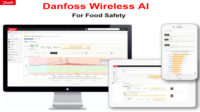ReFED, a multi-stakeholder, non-profit committed to reducing food waste, launched the Retail Food Waste Action Guide, which finds that food waste represents an $18.2 billion opportunity for grocery retailers. Developed in partnership with the Food Waste Reduction Alliance (FWRA), Washington, D.C., and its members, the guide is designed to support grocery retailers in developing and implementing food waste reduction strategies.
ReFED works directly with food businesses, innovators, investors, foundations and policymakers to implement food waste solutions. The Retail Food Waste Action Guide was created with input from more than 30 expert contributors, including retailers such as Ahold Delhaize USA, Carlisle, Pa.; Albertsons, Boise, Idaho; Publix, Lakeland, Fla.; Safeway, Pleasanton, Calif.; Target Corp., Minneapolis; Wegmans, Rochester, N.Y.; Walmart, Bentonville, Ark.; Whole Foods Market, Austin, Texas; and The Kroger Co., Cincinnati. Kroger also partnered with ReFED to help accelerate its Zero Hunger | Zero Waste initiative.
The guide presents a set of proven prevention, recovery and recycling solutions to help the industry prioritize and accelerate waste reduction activities.
“We’re seeing a major trend of retailers increasing focus on food waste,” says Chris Cochran, executive director of ReFED. “What was once seen as a built-in cost of doing business is now viewed as a controllable expense and source of value. ReFED is partnering with retailers to put these waste solutions into action.”
Key findings include:
• On average, the value of wasted food in retail is equal to roughly double the profits from food sales.
• Prevention solutions such as dynamic pricing and markdowns have the highest profit potential.
• Retailers can increase food donations to provide nearly 1.2 billion more meals.
• New digital technologies such as ride-sharing platforms and chain-of-custody records are being applied to food waste through solutions like dynamic routing and cold chain management.
• Low-cost solutions, such as standardized date labeling, already exist and are easy to implement.
ReFED led the development of the Retail Food Waste Action Guide in partnership with Deloitte Consulting LLP, New York. FWRA and ReFED’s advisory council contributed insights, data and industry perspectives to inform the analysis and solutions presented in the guide.
“The Grocery Manufacturers Association (GMA) is committed to reducing food waste and eliminating hunger across the country,” says Meghan Stasz, GMA senior director of sustainability and a leader of the FWRA. “The Food Waste Reduction Alliance was formed to encourage the sharing of best practices within and across industry segments. We’re pleased to partner with ReFED in offering these new guides, which provide actionable advice for operators at all levels of the food waste reduction journey.”
“Today’s release of ReFED’s Retail Food Waste Action Guide offers a fresh opportunity for companies already deeply engaged on the issue of food waste, as well as those just starting out, to take a 360-degree view of their operations in search of new approaches and solutions,” says Andrew Harig, senior director of sustainability, tax and trade with the Food Marketing Institute, Arlington, Va., on behalf of the FWRA. “The guide is undoubtedly an important new tool in retailers’ efforts to reduce food waste across the entire supply chain. The Food Waste Reduction Alliance’s collaboration with ReFED has offered exciting new insights into the importance of active engagement to reduce food loss, and we couldn’t be more pleased that the guide is the first product of this effort.”






